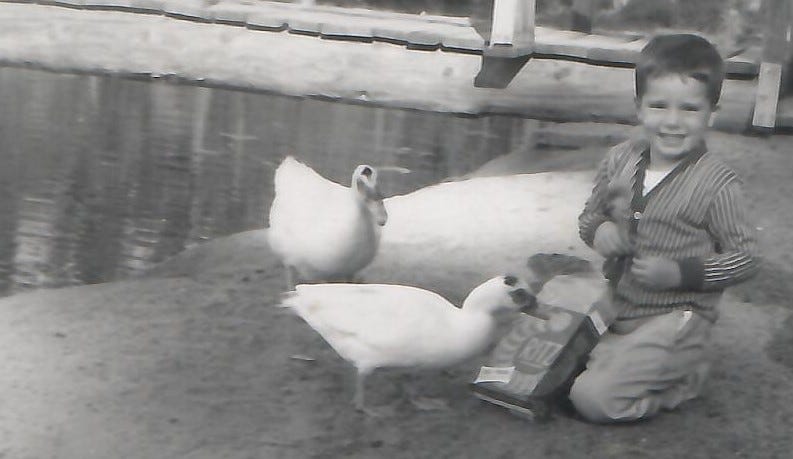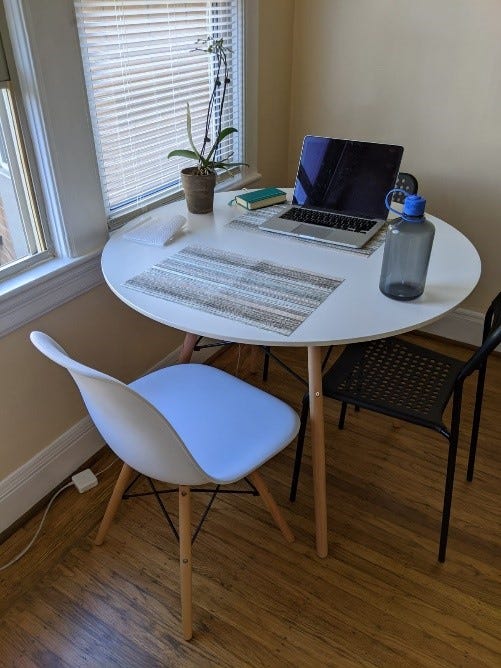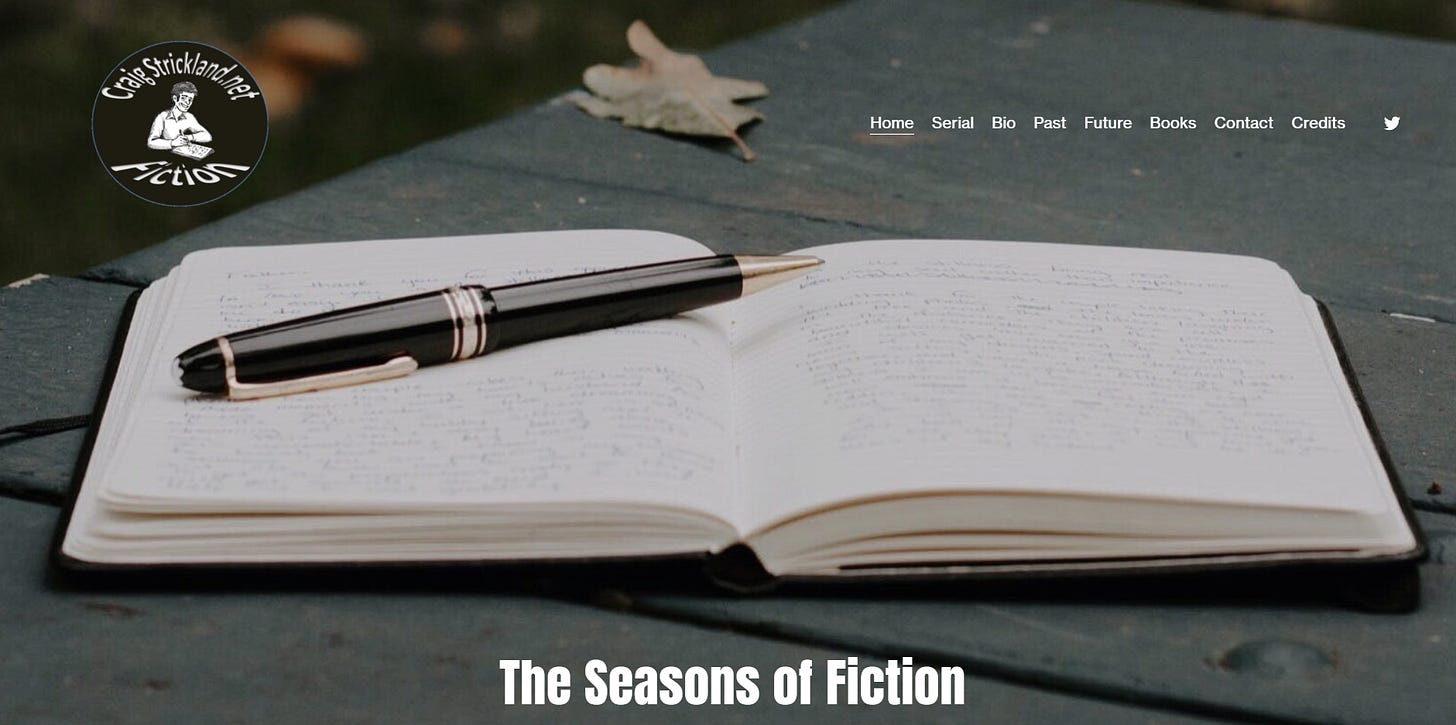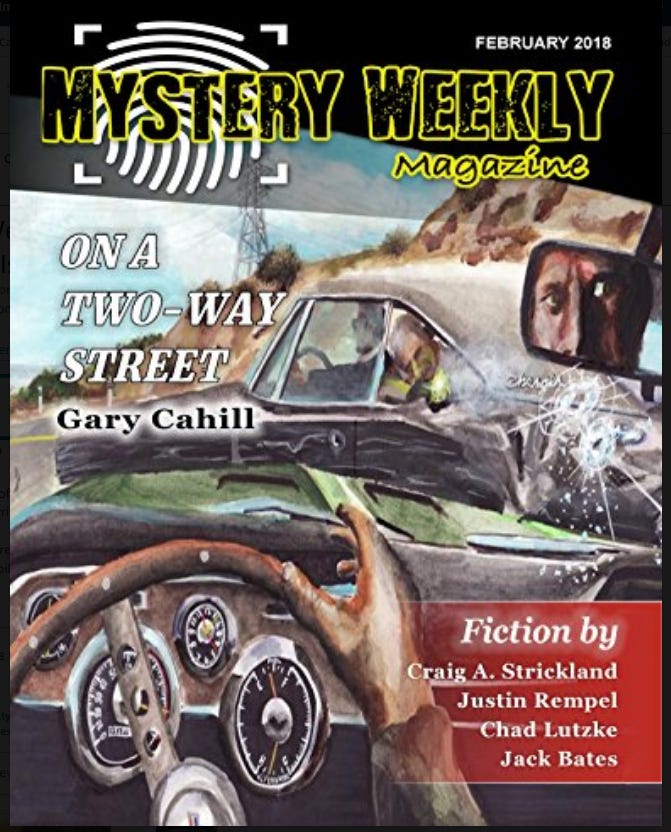Okay, so the title is a bit of a tease. By the end of this first post I’ll reveal what I think the secret is (or at least the first step of the secret). You can decide if I’m onto something. But first, this.
Personal Stuff
I’m Craig. Here’s the first issue of Writing Rhythm. It’s the one where I introduce myself, tell you a little about my writing and background and share where I’m going with this series.
I’ll start with obligatory kid pictures.
This is me on my first day of school, apparently having needed a nametag to ensure I’d be returned to sender.
This is a pic taken immediately prior to a possible duck attack (fortunately, I have repressed the memories). I looked fairly cute in both shots but have only gone downhill since, so I’ll spare you further photos. You’ll learn more about me in coming issues.
Writing Background
I’ve been writing every day for years, with both short and long fiction published, almost all traditionally. I wrote two of the books in the popular “Scary Stories for Sleepovers” series and have a new serial currently up and available on the Kindle Vella platform.
I’ve got a minor in English and a M.A. in Communications. For decades I’ve taught classes on writing, conducted multimedia presentations on writing and critiqued fiction manuscripts.
There’s more. Check it out at craigstrickland.net.
Current Writing
My current main WIP (work-in-progress) is the Touch series. You’ll soon meet my tortured psychic detective, Michael Calrissi, as I incorporate him into the overall discussion of writing fiction—specifically long fiction. For the overwhelming majority of Writing Rhythm I plan to discuss stuff I’ve picked up during my lifelong struggle/love with fiction creation, including techniques and tips on characters, plots and settings in general order from beginning to end. I’ll also offer behind-the-scenes peeks on my own process and top it off with a modicum of self-promotion when I have new material available (just ’cause, hey, that’s how the game is played).
Promises, promises…
In Writing Rhythm I promise to cover
· Converting dreams into an actual readable, workable storyline
· The intricacies of plot, arcs and the creation of compelling characters
· Banging out that first draft
· Working with beta readers and critique partners to polish the whole thing and revise, revise, revise
· Querying agents or editors or following a viable Indie publishing strategy to get the finished product out there
Interested as a reader in how a novel is written? Or do you want to write one? Either way, follow along. I won’t go pedantic (meaning: boringly formal. We’ll come back to this word). I’ll try to make this thing easy-to-understand and fun, and I’ll include links to other resources along the way.
The Tweets
I already highlight lots of pointers in my daily rhyming Tweets, usually illustrated by the talented people at Unsplash. Like this:
I call these “Fortunes for Fiction: daily cookies of tips and inspiration for writers—without the calories.” If you’re on Twitter and you haven’t followed, come on board here.
My idea behind these tips has been to grow Twitter followers by offering daily snippets of value for writers and readers. Some are inspirational, like the one above. In many, I go into the weeds on aspects of novel-writing. For the latter, Twitter’s character limits have been both a blessing (forcing me to capture complex issues about writing in a limited number of words), and a curse (since I could not go into detail on these concepts). For this newsletter I’ve organized these tips by subject and will use them as jumping-off places to chat in depth about specific novel-writing techniques and stages.
We’ll finish with another such tip, but one last bit first:
I’d love to get you involved, too. Over the years I’ve dialogued with folks in regards to the Tweets, fiction in general, or about various writing topics in my classes. I’ve received compliments, disagreements or observations through notifications, private messages, email or in person. I’ve collected many of these communications and once a month I’ll include one, usually in question-form, along with my comments. Starting in August 2023, Premium subscribers can chime in and add their two bits (Premium subscribers also have access to my full archive—plus you help support my writing-and-teaching journey).
Here’s the first one.
Q: How do you get to be a writer?
A: I’ve been asked this one several times, usually in person. I suspect many of you will also have gotten this query. It’s always stated in tones of awe, as if the questioner hopes I will divulge a grand secret.
The internet is loaded with good, if not involved, answers. The job-search site Indeed offers a six-step approach. Letter Review answers the question: Can anyone become a good writer?
I downplay my status as a “professional writer,” but some folks appear bewitched over being considered a “writer” at all. I think people assume that this romantic-sounding career just happens one day. Perhaps you become a writer after being sprinkled by fairy dust, or maybe you get struck by a non-lethal bolt of lightning, or it may simply come if you’ve been born under a very good sign indeed. They seem not to suspect the hours of work behind it, nor the sheer drudgery involved.
I usually give my questioners a polite, long-winded, you-too-can-be-a-writer answer. But in reality, the following terse Tweet seems the perfect response/advice for my would-be writer friends, the first step in the task ahead, the revelation of the secret teased in the title of this issue. It’s also a good final thought to leave you.
Last thing. I get teased by friends for my sometimes wordy and possibly obscure (their word; but what do they know?) vocabulary. I’ll just embrace this trait and make it a positive. The more words you know, the more precisely you can write. We’ll call this section:
I’ll slip in and define a lesser-known word within each issue, then bring it back here at the end with a hint. Here’s today’s offering. If you remembered or knew it already, kudos. If not, click the word and learn, just like an old boring schoolteacher would want you to. Help keep these endangered words around!
What is pedantic?
A final tip: when I first learn a new word, I try to devise a sentence in which the word appears appropriately. It’s a great way to retain it as part of your vocabulary.
Action Plan
Sample my fiction writing on my site with a freebie: a short mystery story originally published in Mystery Weekly Magazine. Click here.
Next Up:
#2) Get Your Head Right to Write. See you in two weeks!
Craig

















